Protein powder supplements are becoming increasingly popular, especially amongst athletes and the health-conscious. But with so many options on the market, how do you find a truly clean organic gluten-free protein powder? So many protein powders are so processed that you can taste how artificial it is – yuck! Like any dietary supplement, it should be of the highest quality available… otherwise, it can do more harm than good.
Why do we need protein in the first place? How much protein is too much? What’s commonly found in protein powder? What are the types of protein supplements and what should you look for?
Let’s dive into all of the details – keep reading to learn more!
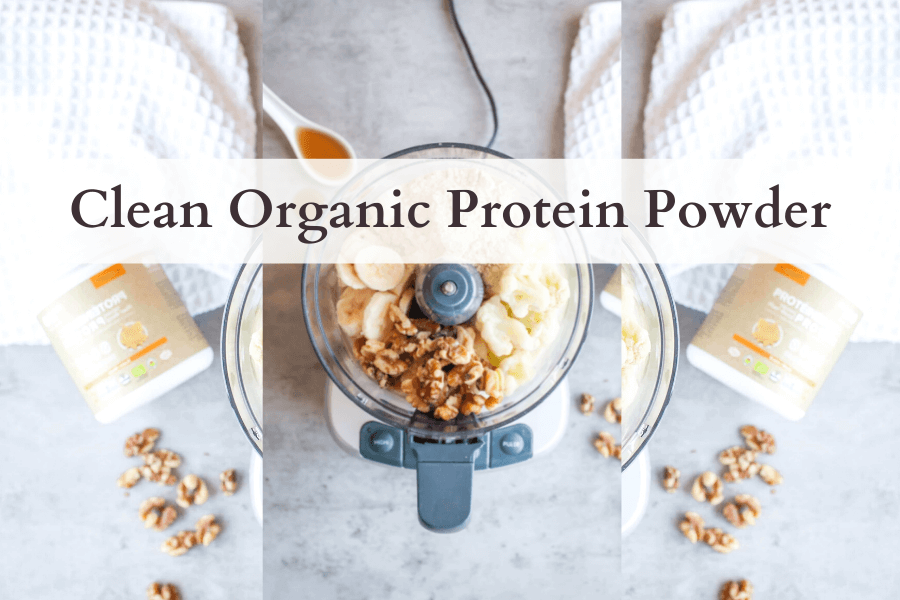
(Note: This article contains affiliate links, meaning In On Around will make a small commission at no additional cost to you. This helps me maintain the site. As always, I value full transparency & only work with brands I love and trust.)
Why Do We Need Protein?
Protein is absolutely essential for a well-balanced diet. Every single cell in the human body contains protein… it’s the main component of our skin, muscles, bones & hormones. Clearly, it serves a very important function.
Protein helps to:
- Repair cells and tissues in the body (stimulate muscle protein synthesis)
- Provide energy
- Create hormones
- Keep you full and regulates appetite
- Increase metabolism
- Help you grow
- Support weight maintenance and body weight loss
- Regulate the immune system
… and so much more!
Eating enough protein in your diet can help you stay satiated and potentially lose weight.
How Much Protein Should You Consume Daily?
You should aim to consume at least 10% of your daily calories from protein, with a maximum of 35%. [1] Eating both too much protein and too little protein can cause issues in the body. Below, follow the quick & dirty formula to estimate the minimum amount of protein you should be eating in grams:
Minimum Protein You Should Eat Daily in Grams = Your Weight x 0.36
For example, a woman weighing 130 lbs should eat at least ~47 grams of protein per day.
If you’re working out consistently (which you should be), you’ll need more protein for lean muscle repair and muscle recovery.
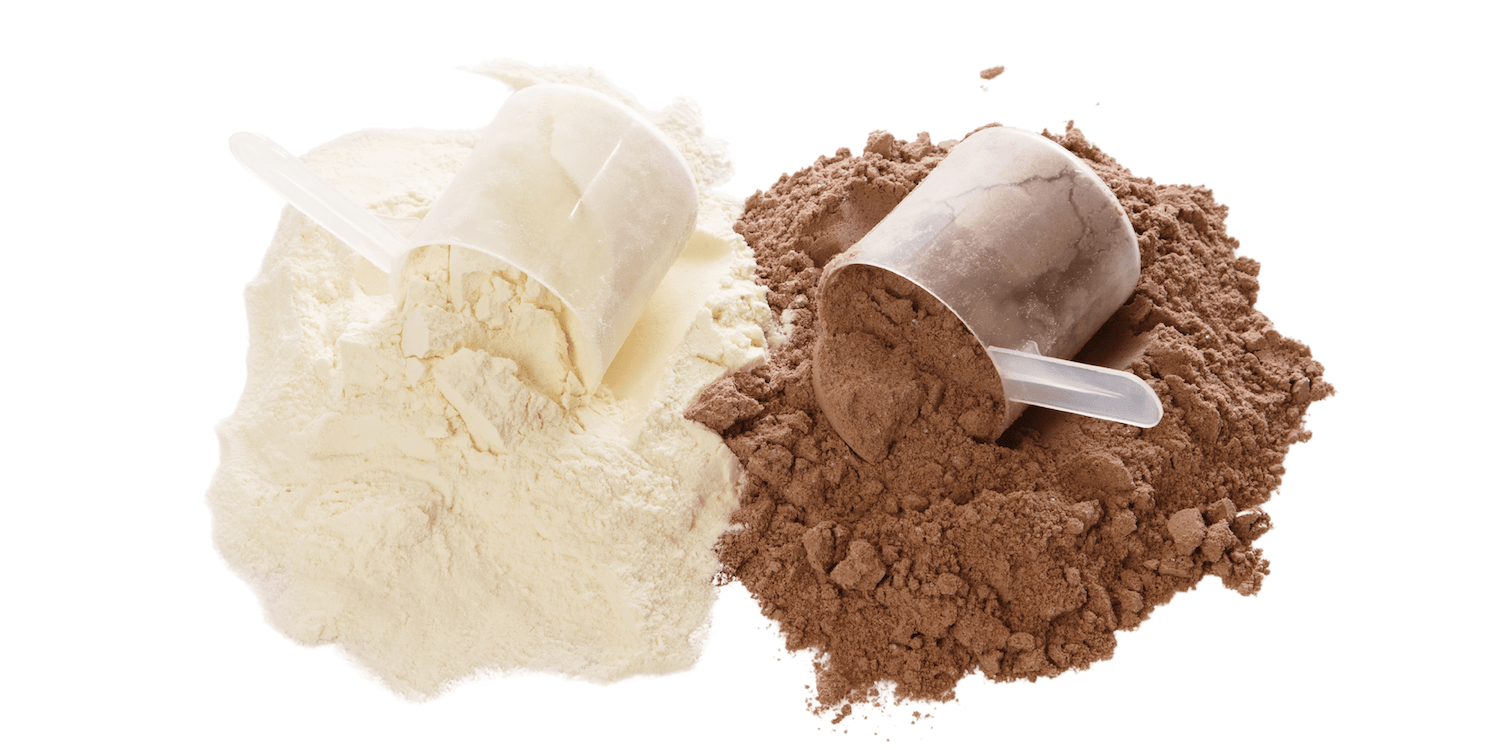
What Happens If You Don’t Eat Enough Protein?
If you don’t eat enough protein, you can suffer from a loss of muscle mass, increased appetite, swelling, fatty liver, weak nails, and stunted growth.
Vegans and vegetarians take note! It is absolutely possible to get enough protein as a vegan or vegetarian… pretty easily too. All it takes is a bit more planning. It is a myth that vegetarians and vegans are deficient in protein. [2]
While meat & eggs are protein rich, plant-based diet sources can be just as powerful. It’s important to ensure that you’re getting all the essential amino acids in your diet.
Nine amino acids, known as the “essential amino acids,” are not made by the body and must be consumed:
- Histidine
- Isoleucine
- Leucine
- Lysine
- Methionine
- Phenylalanine
- Threonine
- Tryptophan
- Valine
… but you won’t find these listed on an ingredient label. Since our body doesn’t store protein, it’s key that we get all 9 essential amino acids from our food (these are the body’s “building blocks” needed for protein synthesis). These can easily be consumed by eating a variety of plant-based proteins.
Plant-Based Protein Sources:
- Beans
- Legumes
- Nuts
- Seeds
- Tofu*
- Tempeh*
- Edamame*
- Seitan
- Quinoa*
- Buckwheat*
- Chia seeds*
- Hemp seeds*
- Spirulina*
- Nutritional yeast*
- Protein powder
* = A complete protein, meaning it contains all nine essential amino acids
Don’t stress out… according to the Dietary Guidelines for Americans, most people get more than enough protein throughout their day. [3] Protein powders, as long as they’re truly clean and organic, can be a great addition to any diet. As a vegetarian, I incorporate protein powder into my diet daily… but not just any protein powder!
What’s Commonly Found In Protein Powder? How Can You Find A Clean Organic Protein Powder?
In reality, most protein powders on the market are 💩 – yup, I said it. It is very, very important to ensure that all supplements, especially protein powders, are truly clean.
It’s essential to thoroughly read the label. It’s not necessarily the nutrition label you should be looking at… it’s the list of ingredients. You want the ingredient label to be as clean, simple and whole-foods based as possible.
Most protein powders on the market contain a concoction of…
- Thickeners/Gums
- BPA
- Unnecessary Fillers/Additives
- Added sugar
- Artificial flavors & sweeteners
- Natural flavors
- Stevia
- Gluten & Dairy
- Both potentially linked to inflammation
- [Related Posts: How To Eat An Anti Inflammatory Diet and Gluten-Free Diet Pros And Cons For Non-Celiacs]
- Heavy metals (not listed on the label) – like Lead, Cadmium, Arsenic…
- If you’re in California, these would be listed with a Proposition 65 warning label (this is one of the stricter limits, but it’s not universally accepted outside of California).
- Lead can be an issue for many vegetable protein powders, especially in chocolate proteins.
The Clean Label Project’s Report On Protein Powder Toxins
The Clean Label Project conducted a large toxicity study on 134 products. [4] They tested for 130 different types of toxins in protein powders, including heavy metals, BPA, pesticides, and other harmful chemicals linked to disease.
The results are shocking… to say the least:
- About 75% of protein powders tested had measurable levels of lead, including plant-based protein powders.
- Many protein powders contained mercury, cadmium, and arsenic… many above health guidelines.
- 55% of protein powders tested had measurable levels of BPA, which is a known endocrine disruptor.
- Certified organic products had twice as many heavy metals (yikes …but don’t cross off organic just yet!)
Protein Digestibility
Protein digestibility is incredibly important! You can be eating enough protein, but if it’s not being properly digested, then your body is not fully utilizing it. This is where protein digestibility-corrected amino acid scores (PDCAAS) come into play.
PDCAAS evaluates the quality of protein based on digestibility. The values range from 1 (the highest and most digested) to 0 (the lowest and least digested).
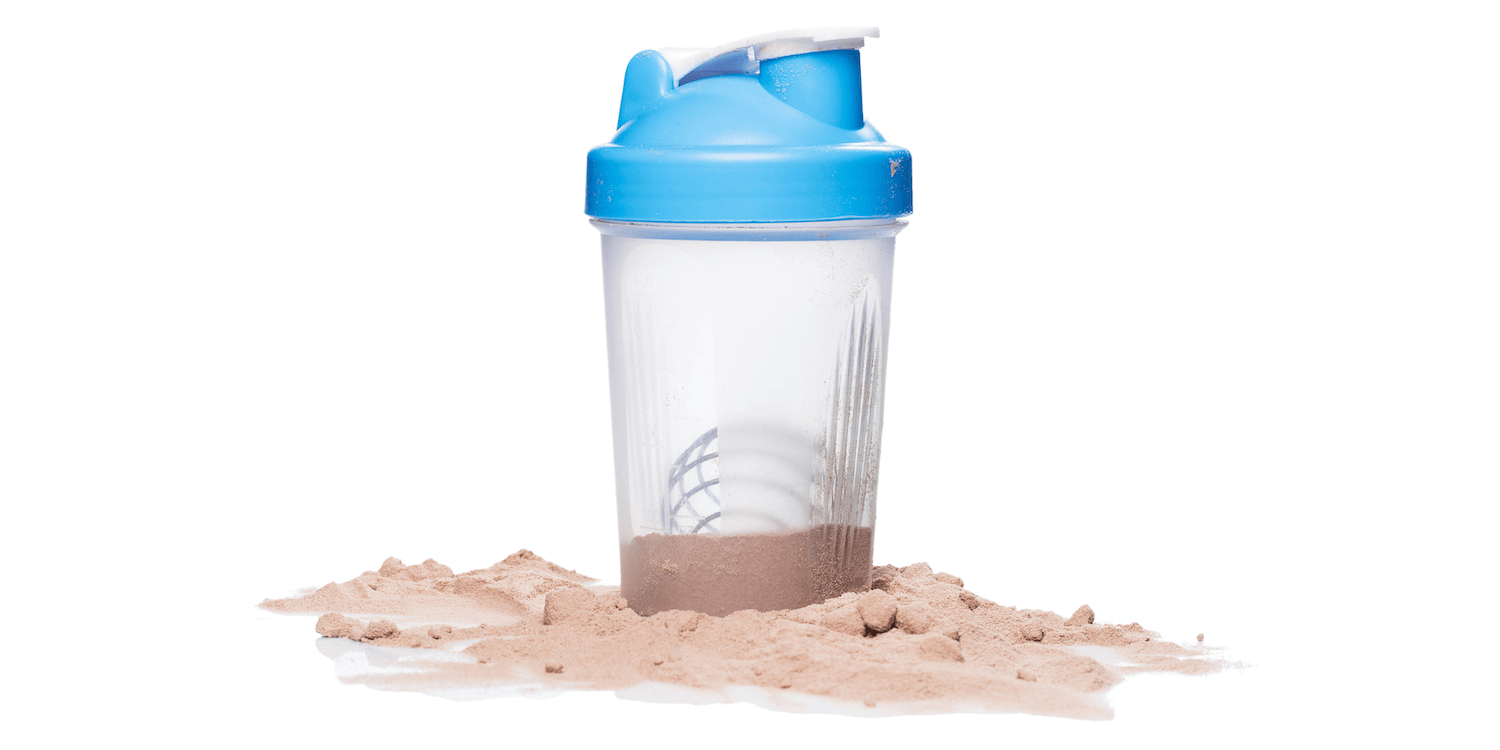
8 Different Sources Of Protein Powder (Animal-Based vs. Plant-Based)
1) Whey
- A byproduct of milk
- Also on the label as whey protein concentrate (WPC), whey protein isolate (WPI) & whey protein hydrolysate (WPH).
- Pros:
- Oftentimes less expensive
- Complete source of protein (9 amino acids)
- Easily found in stores (most popular)
- High PDCAAS score (score of 1)
- Cons:
- Can be linked to digestive discomfort (especially if you have a hard time digesting lactose)
- Oftentimes low-quality from factory-farmed animals
- Can be inflammatory
2) Casein
- The main protein in milk
- Commonly: micellar casein, calcium caseinate & hydrolyzed casein protein
- Pros:
- Digests slowly, so keeps you satiated longer than whey
- Complete source of protein (9 amino acids)
- High PDCAAS score (score of 1)
- Cons:
- Can be linked to digestive discomfort and constipation [5]
- Inflammatory [6]
- More expensive than whey
- May exacerbate issues for those with liver or kidney diseases
3) Egg
- Pros:
- Digests slowly, so keeps you satiated longer than whey (second to casein)
- Complete source of protein (9 amino acids)
- Usually affordable
- High PDCAAS score (score of 1)
- Cons:
- Lower in amino acids than other protein sources
- Can be linked to digestive discomfort – avoid if sensitive to eggs
4) Soy
- Pros:
- A plant-based protein
- Complete source of protein (9 amino acids)
- Better source of protein synthesis/muscle growth compared to casein [7]
- Oftentimes easier to digest
- Neutral taste
- Usually affordable
- High PDCAAS score (score of 0.91)
- Cons:
- Most soy is genetically modified unless certified organic
- There is an ongoing debate that soy can be harmful to hormones when consumed in excess.
- Some people are intolerant to soy (and they don’t even know it!)
- Not as effective for protein synthesis/muscle growth compared to whey [8]
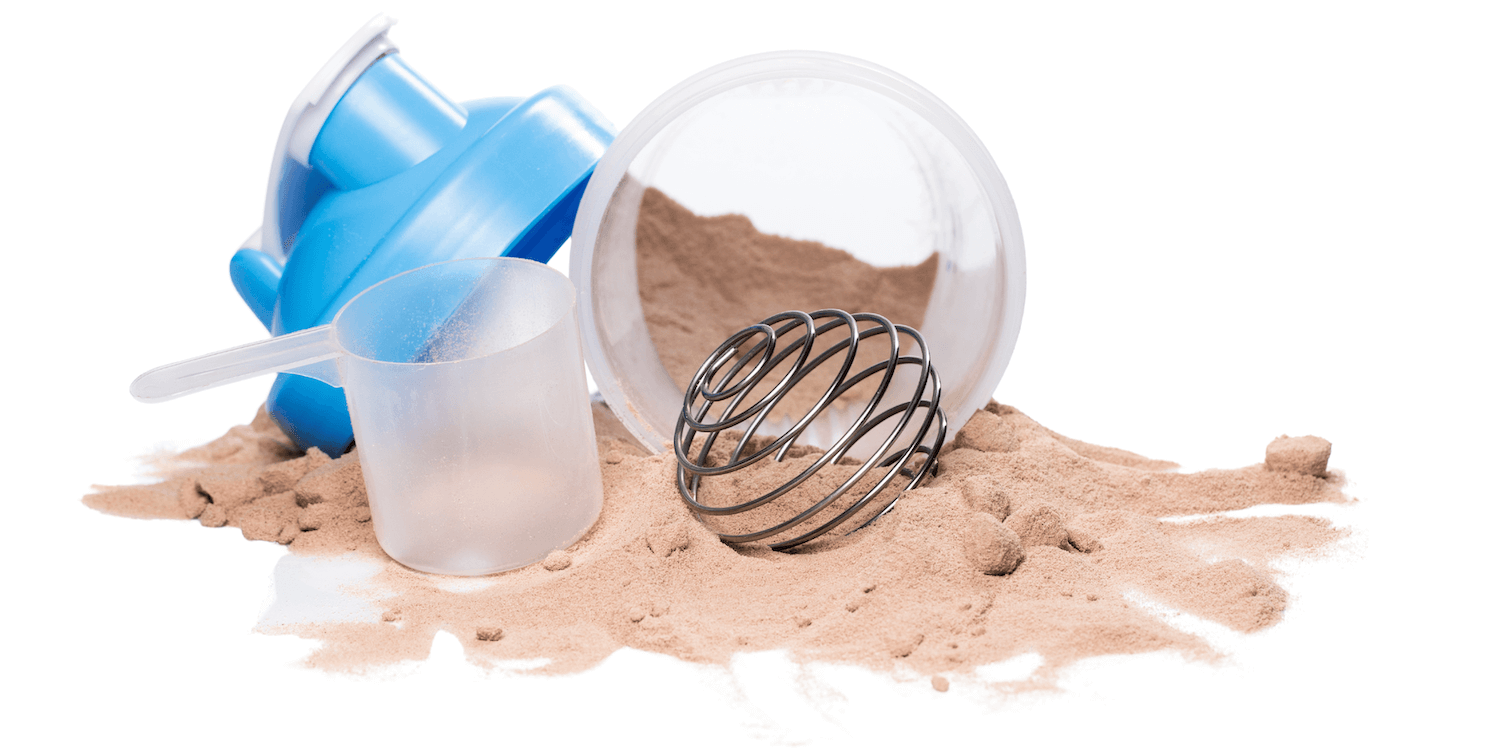
5) Pea
- Pros:
- Easily digested protein
- High in iron
- Cons:
- Can have a strong pea taste in certain powders
- Likely sprayed with glyphosate or other herbicides if not certified organic
- Incomplete source of protein unless paired with another protein, like brown rice
6) Hemp
- Pros:
- A plant-based protein
- Easily digestible if cold-pressed seeds [14]
- Complete source of protein (9 amino acids)
- A good source of fiber
- Contain a 3:1 ratio of omega-6 and omega-3 dats, which is the ideal ratio
- Cons:
- More expensive
- Lower in lysine
- Lower PDCAAS score
- Slightly higher in calories
- Has an “earthy” or nutty taste
7) Collagen
- Pros:
- Cons:
- Not a complete source of protein (missing tryptophan), so must be combined with other sources of protein
- An animal protein
8) Brown rice
- Pros:
- A plant-based protein
- High in B-vitamins and fiber
- Naturally lactose and gluten-free
- Cons:
- Not a complete source of protein, so needs to be paired with another source for all 9 amino acids
- Low PDCAAS score
Gluten-Free Protein Powder – In Summary:
The protein powder discussion can be confusing! A lot of it comes down to personal preference and whether you aim to avoid eating animal-based products.
Animal-based proteins (like whey, casein, and egg) do have a higher digestibility score, however, pea protein mixes are not far behind. The quality of the product is the most important factor. What works for YOU might not work for someone else – listen to your body.
Even though some plant proteins don’t contain all 9 essential amino acids, this can easily be fixed by including a mixture of different plant-based proteins. Some plant-based proteins, like pea, have been shown to be just as effective in muscle synthesis as animal-based proteins. Pea protein also produces similar outcomes to whey regarding muscle thickness, force production, workout routine strength, and performance. Most of these options are great if you’re lactose intolerant but always read the label.
Note: A protein shake should not serve as a meal replacement! They should only be used to supplement your diet.
What To Look For In A Clean Organic Protein Powder
- Certified organic (which is always non-GMO) or mostly made of organic ingredients
- 20+ grams of protein, preferably with a mixture of plant-based sources, including pea protein
- Short ingredient list
- Heavy-metal tested (especially for chocolate protein powders)
- Unflavored protein powders are typically lower in heavy metals. Vanilla is also typically lower in heavy metals than Chocolate (though not always).
- If a brand is selling crazy flavors like “s’mores” and “french toast,” for instance, they likely don’t use real food ingredients.
In addition, avoid multi-level marketing (MLM) companies. While not all of them use poor-quality ingredients, in my research, most of them do. If you’re pregnant or nursing – definitely check with your doctor first before consuming protein powder. Only use high-quality protein (and read the FULL ingredient list).
The Best Clean Organic Protein Powder On The Market
[Section updated August 2023 with updated Certificate of Analysis information]
It is absolutely essential that the protein powder you’re using is clean and organic, especially if you drink it regularly. Mix together some organic almond milk, frozen berries (like goji berries), frozen spinach, and a scoop of protein powder – you’ll be good to go! It’s also great to bake with. It’s perfect for a post-workout shake – adding protein to your diet has never been easier. It can be perfect for your health and fitness routine.
Heavy metal testing transparency is key. Support brands that are proud of their test results.
If you’re interested in learning more about the best collagen protein brands, check out: Collagen Supplements 101 – Collagen Powder Side Effects
Let’s dive into the best protein brands (according to their COA results and ingredient lists)…
1 – Ora Organics – So Lean & So Clean Protein (Unflavored Only)
They quickly responded to my email. All COAs are posted directly on their website (which is great)! For all flavors: Arsenic not detected; Mercury under 0.1 ppm; Lead under 3 ppm; Cadmium under 1 ppm (based on the EU standards – they received a “pass”)
- USDA-certified organic (one of the few!)
- You can find their protein powder COAs for chocolate, vanilla, chai, and unflavored directly on their website. [17] Although, one downside is that the test results only show a “pass” or “fail” result – not the exact measurement.
- Contains stevia in their flavored options – opt for unflavored
- Plant-based protein with pea protein, rice protein, acai, turmeric, and more.
- About 23 g of protein per serving (2 scoops)
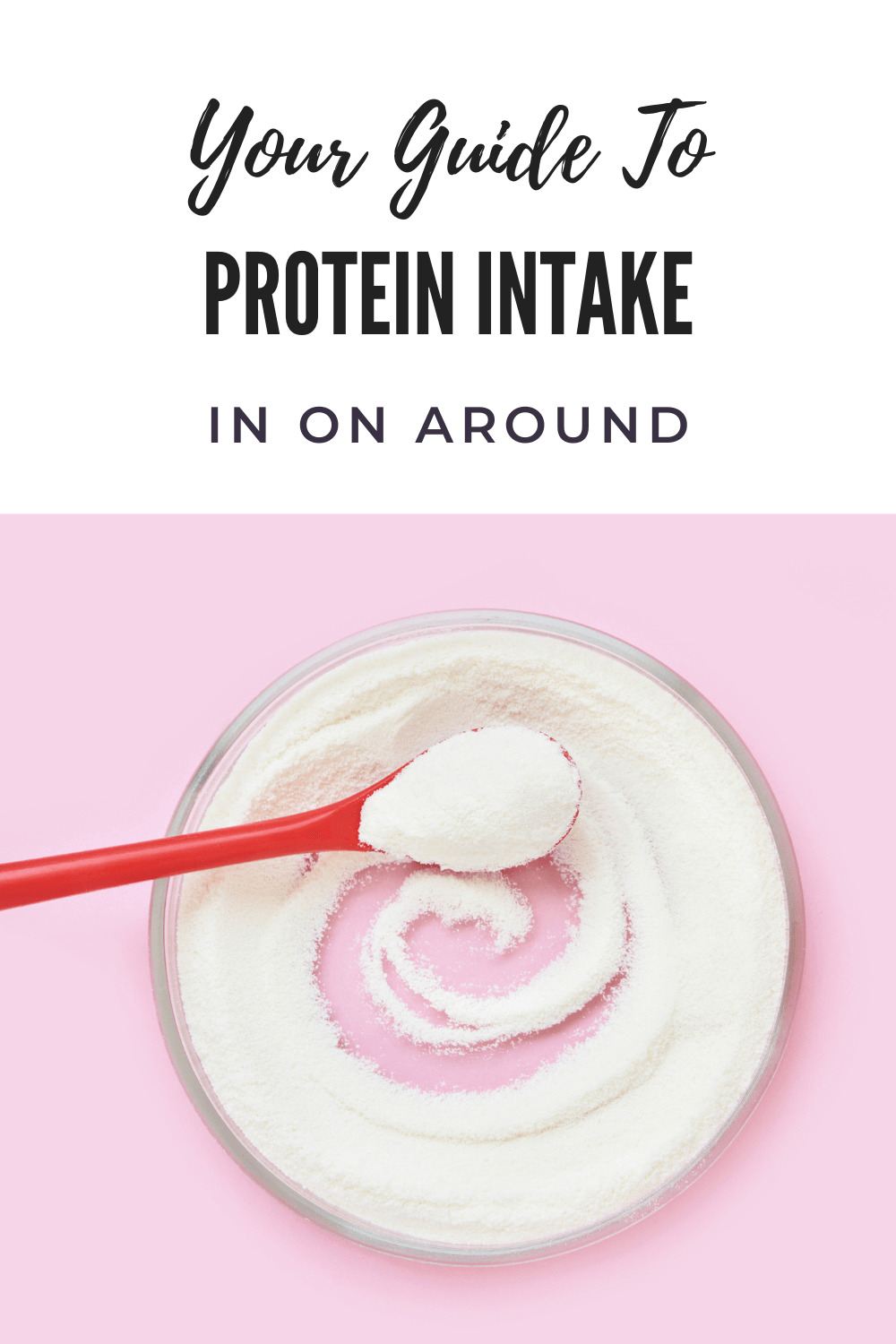
Better Protein Powder Brands
Anything with stevia, like NUFYX and Levels, would fall into the “better” category. I prefer to avoid stevia in supplements altogether. Personally, I would not buy a protein powder with stevia, but it’s so common in many brands. You can read more about stevia here: Is Stevia Safe?
1 – Cymbiotika – Vanilla Plant Protein
Arsenic was 0.077 ppm, Mercury was not detected, Lead was 0.083 ppm, and Cadmium was 0.077 ppm.
- Made from organic hemp protein, spirulina, pea protein, etc…
- Contains stevia (which I prefer to avoid) – this is why they’re in the “better” category.
2- Equip – Prime Protein (Unflavored)
They quickly responded to my email. The flavor of the product was not specified on the COA, but I confirmed with their customer service team. I requested three different COAs and all were quickly sent to me.
- Chocolate: Arsenic was under 0.393 ug/serving, Mercury was under 0.197 ug/serving, Lead was under 0.197 ug/serving, and Cadmium was under 0.197 ug/serving.
- Vanilla: Arsenic was 0.247 ug/serving, Mercury was not detected, Lead was 1.2067 ug/serving, and Cadmium was 0.114 ug/serving. The lead level for their vanilla flavor is too high.
- Unflavored: Arsenic was under 0.05 ug/serving, Mercury was under 0.02 ug/serving, Lead was under 0.02 ug/serving, and Cadmium was under 0.01 ug/serving.
- Contains stevia and undisclosed natural flavors in their flavored options – opt for unflavored
- It’s not USDA-certified organic (which is a big con) – why it’s not in the “best” category
3 – Truvani – Organic Unflavored & Unsweetened
They shared with me a test results web page that explains that they test each ingredient and finished product for heavy metals, although the most recent COAs are not included on this page. [18] I’m a fan of the Truvani brand, Truvani’s founder, and they are apparently working to share test results in a more transparent way, but they refused to share “due to legal reasons.” Although, I’m keeping them at the bottom of the “better” category because I know how much the founder is focused on creating high-quality products.
- Certified USDA-organic (one of the few!)
- Free of preservatives, artificial colors, and sweeteners
- Made from three organic ingredients: pea protein, pumpkin seeds, and chia seeds
4 – Promix – Unflavored Whey Protein Powder
The test result on their website is without a date or disclosed tested flavor (this is not a trustworthy COA). The result shared showed Arsenic was under 10 ppb, Mercury was under 5 ppb, Lead was under 5 ppb, and Cadmium was under 10 ppb. – Update February 2022: All of the heavy metal levels for their products on their website are the same, which is a red flag. We requested the official reports from the Quality team and followed up for over two weeks. They said they cannot provide us with that information – they are, unfortunately, not being fully transparent here. It is still a high-quality product, but we do not know the true heavy metal levels.
- Made from grass-fed whey concentrate and sunflower lecithin
- Not USDA-certified organic
5 – Just Ingredients – Unflavored
Their COA test results are directly on their website (which is great)! For Chocolate, it shows Arsenic at 1.86 mcg/serving, Mercury under 0.33 mg/serving, Lead at 0.01 mcg/serving, and Cadmium at 1.18 mcg/serving. [19] For Vanilla, Arsenic was not detected, Mercury was not detected, Lead was 0.5 mcg/serving, and Cadmium was 0.2 mcg/serving. Their Vanilla flavor has significantly less heavy metal contamination. [20]
- They offer a wide range of protein powder options, but all of their flavors (including unflavored) contain stevia (which I prefer to avoid).
- Made from 100% grass-fed non-denatured whey protein with pea protein and grass-fed collagen peptides
6 – Flavcity – Vanilla Protein Smoothie
They sent over their COA, but they blurred out the name of the product on the report AND the date. There is no way to know what product or flavor the report is actually for (major red flag) – especially if they’re potentially sharing the same results for any COA request email. That is NOT the proper way to redact a COA.
If the COA is actually for their vanilla protein, it shows Arsenic under 0.001 ppm, Mercury under 0.001 ppm, Lead at 0.01 ppm, and Cadmium at 0.004 ppm.
- Made from grass-fed whey protein concentrate with organic ingredients, like organic banana powder and organic pea protein
- Contains stevia (which I prefer to avoid)
Worst Protein Powder Brands
All of the popular conventional protein powders, like Body Fortress, Optimum Nutrition, Dymatize, Premier Protein, Labrada, Isopure, Ghost, Muscle Milk, Sascha Fitness, 1st Phorm, Six Star, Jocko Molk, Legion, etc… would fall into this category. Any MLMs would also fall into this category, including Arbonne and Monat.
Here are the “healthier” protein powder brands that didn’t meet the cut.
1 – Ancient Nutrition – Pure Bone Broth Protein
They quickly responded to my email but with the wrong COA. They do not share the COA for their Bone Broth protein or Plant Protein, but they do for their collagen (which is a red flag – they are picking & choosing test results).
- Made with chicken and beef bone broth protein concentrates
- Made from non-GMO US-farmed chickens and grass-fed pasture-raised European cows
- Not USDA-organic
2 – Organifi – Vanilla Protein
A customer service representative quickly responded to my email saying they have forwarded my email to the product team. I’m still waiting on a response. I’m hoping they get back to me since they’re an In On Around favorite for greens powder.
- USDA-organic certified
- Glyphosate-residue free (which is great!)
- Made from organic pea protein, flax seed, quinoa, pumpkin seed, etc…
- Contains stevia (which I prefer to avoid)
- Contains coconut sugar, which isn’t necessary in a supplement
3 – Ka’Chava – Vanilla Plant-based Protein
They do not share heavy metal results because it’s “proprietary” (which it’s not).
- Contains some gums (xanthan gum and guar gum)
- Doesn’t contain stevia, which is great.
4 – Sunwarrior – Warrior Blend Organic
They do not share heavy metal results because it’s “proprietary” (which it’s not).
- USDA-certified organic (not all of their products are, but their Warrior Blend is)
- Made from organic pea protein, goji berries, hemp seed, etc…
- Contains guar gum (best to limit gums)
- Contains stevia (which I prefer to avoid)
5 – Kion – Purely Unflavored
They do not share heavy metal results because it’s “proprietary” (which it’s not).
- From grass-fed and pasture-raised cows
- Made from bovine whey protein isolate and sunflower lecithin
- Not USDA-certified organic
6 – Thorne – Whey Protein Isolate (Vanilla)
They do not share heavy metal results because it’s “proprietary” (which it’s not).
- Contains undisclosed flavors, cane juice sugar, multiple gums, and stevia
- Not USDA-certified organic
7 – Primal Kitchen – Vanilla Coconut Whey
They do not share heavy metal results because it’s “proprietary” (which it’s not).
- They’re owned by Kraft Heinz
- Contains undisclosed natural flavorings and stevia (which I prefer to avoid)
- Not USDA-certified organic
8 – Orgain – Organic Plant Based Protein Powder
They did not respond to my multiple inquiries.
- USDA-certified organic
- Contains undisclosed natural flavors, guar gum, and xanthan gum
- Offers an unflavored option
9 – Paleovalley – Grass Fed Bone Broth Protein
They did not respond to my multiple inquiries.
- Made from grass-fed cows
- Offers unflavored, which is great
- Chocolate flavor contains maltodextrin – besides this, it’s mostly made from clean ingredients
- Tested for over 40 different pesticides (although we can’t see the test results)
10 – Bowmar Nutrition – All Whey Protein
They did not respond to my multiple inquiries.
- Contains undisclosed natural flavors, citric acid, and multiple gums
This is a comprehensive, but not exhaustive list. You can reach out to other protein powder brands to request their heavy metal test results.
Frequently Asked Questions – Healthy Protein Powder
Click on the below FAQs to learn more!
Why do we need protein?
How much protein do we need daily?
Is protein powder healthy?
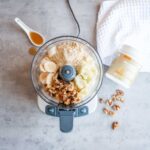
Protein powder can be healthy, as long as you’re using a brand free of harmful additives. Many gluten-free protein powder brands on the market contain harmful thickeners, gums, BPA, fillers, added sugar, artificial flavors and sweeteners, natural flavors, and more. There are many healthy protein options available – you just need to find the right brand.
How to find the healthiest protein powder?
As it turns out, many protein supplements on the market are far from healthy. This is why it’s so important to do your due diligence before supporting a brand. As always, protein from real food is the best! In On Around is here to help! What goes in, on, and around your body matters.
What gluten-free protein powder do you use?
Let me know in the comments! You can watch our web story here.
xoxo,

Want to read more? Check out my other articles here!
Information on gluten-free protein powder from: Clean Label Project, Harvard, Your Super, Medline Plus, Medical News Today, Very Well Fit, Livestrong, Healthline, Blender Bottle, EcoWatch, Shape, BarBend, AgroPur, PubMed
Copyright In On Around LLC 2021 ©. The statements made on this website have not been evaluated by the FDA (U.S. Food & Drug Administration). They are not intended to diagnose, treat, cure, or prevent any disease. The information provided by this website should not be used as individual medical advice and you should always consult your doctor for individual recommendations and treatment.

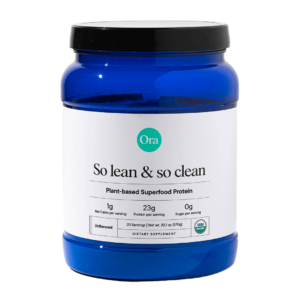
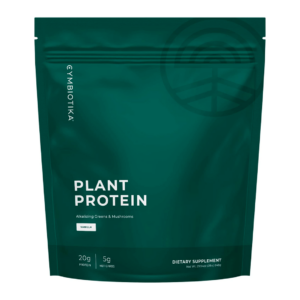


3 Responses
Right know I’m using truvanis the taste in them shakes are really good I was always curious on cymbiotika products like their protein
Hi Cesar, Thanks for your comment! Truvani’s protein tastes great, I agree. Glad to hear this information was helpful!